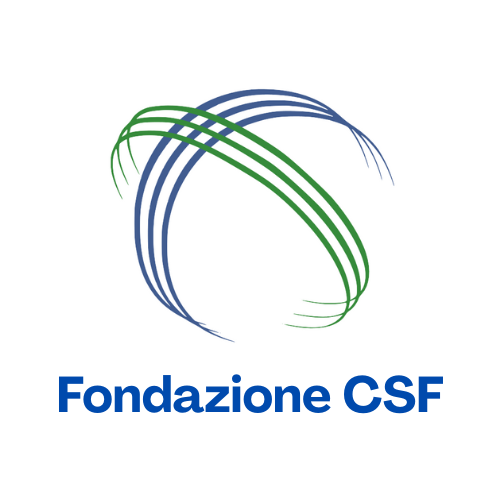Flavio Brugnoli / 6 June 2023
Commentary no. 266
There is only one year left before the next election of the European Parliament, scheduled for 6 to 9 June 2024. The vote will start the transition from one of the most troubled, and often dramatic, legislatures in the history of European integration to a new five-year period, whose challenges and risks are already emerging. Awareness that the European elections will be a fundamental step for the construction of Europe is growing in the debates taking place in Italy. The time has therefore come to present both an initial (provisional) assessment and the possible scenarios for the Europe to come.
When in the summer of 2019, the then candidate for President of the European Commission, Ursula von der Leyen, indicated the "double transition", ecological and digital, and the "geopolitical" role of the Commission as strategic objectives of her presidency, no one could have imagined that we were on the eve of a global pandemic and would also witness the return of the war of aggression in Europe. Nevertheless, von der Leyen’s programme captured the epochal impact of the climate crisis, the role that technological sovereignty had now assumed, and the need to question the role of the Union in a world dealing with an unstable multipolarity.
Covid-19 has given a boost to the redesign of the economic governance of the Union, from the suspension of the Stability and Growth Pact to the launch of Next Generation EU, with the creation of a common European debt, to a new European Stability Mechanism (ESM) connected to the Banking Union. We still do not know how Putin's imperialism will be defeated, but we know that action is urgently needed for a new European security, that encompasses energy (after years of short-sighted dependence on Russian fossil fuels) and military defence, within the framework of a NATO that is revitalised and enlarged by Russian aggression. Equally relevant will be the prospects of enlargement (“widening”) to new Member States, already outlined by the European Political Community project, which will re-propose the theme of “deepening” of the institutional architecture of the Union.
But how are the European political camps preparing for the electoral test? The manoeuvres for a possible overcoming of the historic agreement between the Popular parties and the Socialists (already a minority in 2019 in terms of seats), on which the construction of Europe has been based for decades, are there for all to see. Perhaps we are moving towards an unprecedented redefining of the form of European bipolarity between a centre-right and a centre-left. The pivot of the first would be an agreement between the EPP (European People’s Party), led by Manfred Weber, and the ECR, the party of European Conservatives and Reformists, whose president, Giorgia Meloni, is the head of the Italian government. This would be an agreement that certainly the EPP would not support unanimously, and with respect to which we will see how the other political forces will organise themselves. It is thus appropriate to broaden our reflection on this issue.
A first consideration would be the structure of the European political space, in which several variables intertwine. While the "traditional" distinction between right and left does not seem to have blurred, this distinction is now intertwined with that between the sovereignists and the integrationists (already outlined, with foresight, in the Ventotene Manifesto). But the "sovereign" camp appears in turn to be riddled with different visions of a European future. The "polycrisis", the multiple crises in which we are still immersed, could push the forces that are aiming for a pure and simple destruction of the European edifice to the sidelines and open up new scenarios.
According to the most optimistic hypothesis, an "American" type dynamic, would be confirmed, which could see a centre-right more attentive to the rights of States and more wary of "interference" at the European level, except on issues such as security (immigration included) and defence, and on the other hand, a centre-left alignment more confident about the intervention of the European ("federal") level, particularly in the economic field. However, it is clear that if (the governments of) some Member States question the very foundations of the rule of law, mutual trust and "sincere cooperation" on which the European institutions are based are undermined.
At the same time, one can wonder about the medium-term impact of a new European bipolarity. The political-institutional system of the Union has been almost by definition "centripetal", with a broad convergence on shared common policies at the centre. Will a European bipolarity trigger a healthy "normalisation" of the European political scene or rather a “centrifugal” dynamic, which could undermine the legitimacy of the Union’s choices in the eyes of the electors of the losing side? A broad bipartisan convergence on the two decisive pillars of the future Union, the economic and the security, therefore remains desirable. It should never be forgotten that in a "Union of Peoples and States", what matters are the dynamics and balances within the institutional triangle of Commission-Parliament-Council.
The European Parliament would probably conclude the current legislature with an ambitious proposal to reform the Treaties. It seems unlikely that any agreement on the matter will be reached between the Member States before the 2024 elections. What can be hoped is that the reform proposals will at least enter the debate during the electoral campaign. Any democratic system, even that of the Union, is imperfect and can be perfected. It remains to be seen whether the "transnational lists" will be tested at the European elections and whether and how the Spitzenkandidaten method will be relaunched. We can expect the start of the new legislature to be uphill, with the first six-monthly presidencies of the Council entrusted, in order, to Hungary and Poland. Meanwhile, it is noteworthy that the European Parliament has warned against the risk of foreign interference in the vote, as the Commission prepares to present its package of measures for the "Defence of democracy".
The European legislature 2024-2029 will have on its agenda formidable strategic global dilemmas: between democracies and autocracies, between multilateralism and unilateralism, between cooperation and competition. The common theme should be that of European strategic autonomy, or how to find degrees of European independence (sovereignty) in a world that is and will remain interdependent, and in which uncertainty dominates: from the scarce prospects of a "just peace" for Ukraine (along with the start of its reconstruction), to the relationship with a China in which nationalistic tendencies are growing, to the United States as an indispensable partner, but with a presidential election on 5 November 2024, that could repeat the Biden-Trump confrontation, to the push to give a political voice to the growing "Global South" (a phrase that mixes very different realities, but is now rooted in the international debate).
Italy is grappling with a difficult revision of the National Recovery and Resilience Plan and with a belated ratification of the new ESM, which is essential to credibly propose various future uses for it. For the European elections it must be hoped that the political forces and the media do not linger in confrontations (favoured by proportional voting) focused only on domestic equilibria. In Europe, political coalitions are built on political agendas, on decisive issues for our future and for the younger generations. A founding member of the Union, for which Europeanism and Atlanticism have always been the pillars of its "being in the world", must know how to rise to the challenges that await it.
*Director of Centro Studi sul Federalismo

 En
En  It
It 



